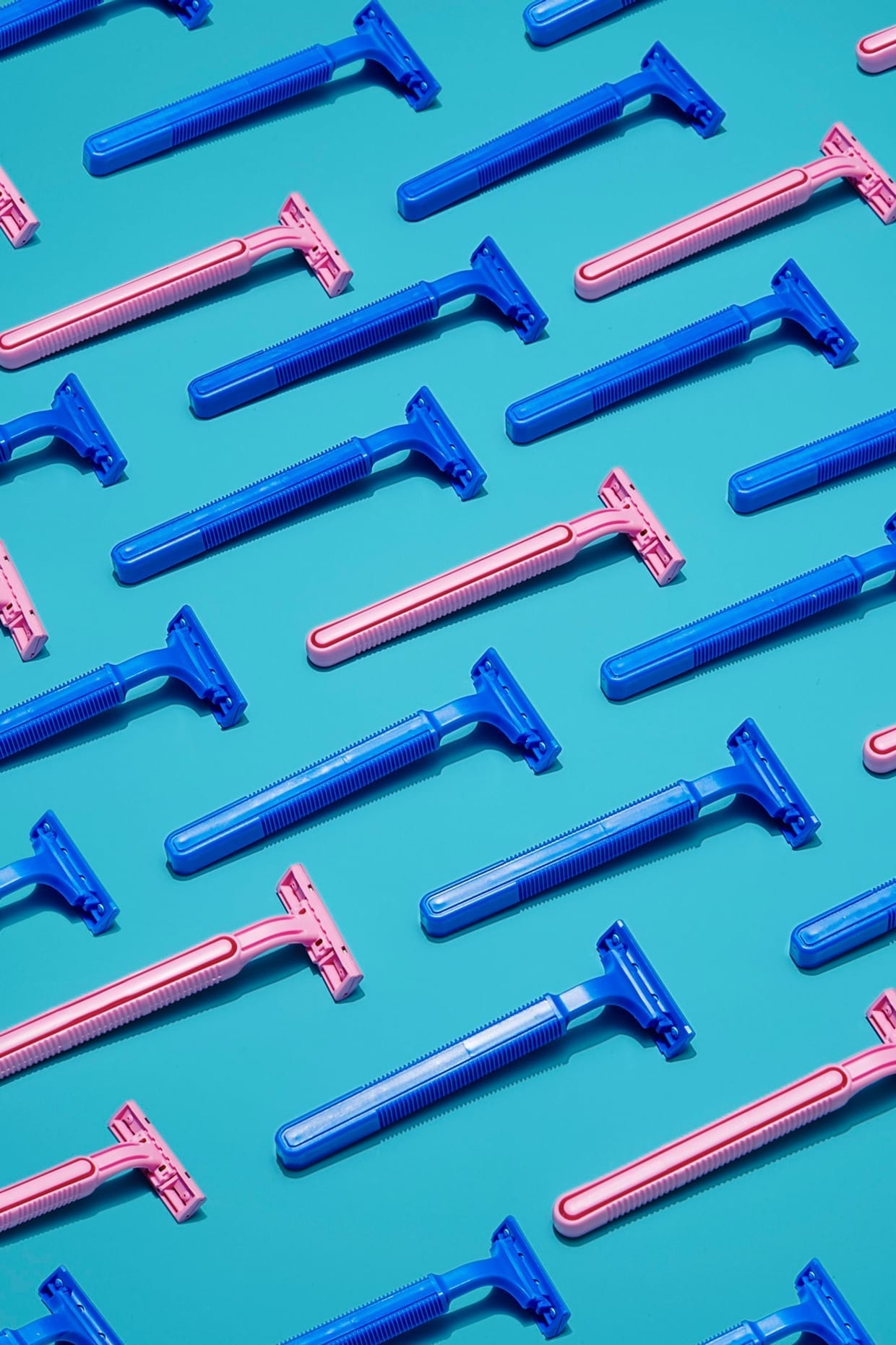Worrying about our health (and being freaked out at a random symptom or flare-up) is totally normal — but it can also be avoided by developing a healthy repertoire with your doctor. After all, C. Nicole Swiner, M.D., says she would rather her patients ask her those deep, dark, burning, strange questions they have, rather than relying on the internet or television for false information.
However, there are some thoughts that seem silly. Or perhaps, a little crazy.
Maybe you are noticing an unusual symptom, or you are merely curious. Whatever the case, putting those questions into sentences and saying them out loud in front of your physician can be overwhelming. As David Greuner, M.D., puts it, in the end, it comes down to simply being human. “To confide in another person with your personal issues can most commonly make you feel vulnerable and embarrassed,” he says. “Just remember that myself and other doctors are here to help.”
To help you get more comfortable with whatever is causing you concern, we chatted with doctors about those tricky questions we have but could never get the courage to ask.

“OMG. Why do I have bumps down there?”
Discovering a bump near/on the genitals can be alarming — many folks will instantly think they have a sexually-transmitted infection. But urologist, licensed sex therapist and medical advisor for Rory, Serena McKenzie, N.D., says to take a big breath. There are plenty of reasons why spots could appear below your belt — and most of them are nothing to sweat over. One of the most common causes for bumps are ingrown hairs, which McKenzie explains is what happens when hair follicles become inflamed and irritated on the vulva, often due to shaving. This will create a red — but temporary! — bump that will go away on its own.
If you do not air your lady bits enough, or you swap cotton underwear for silk, you could experience acne breakouts, too. This can happen when your pores become clogged from sweat, especially after a workout or a day of walking around in the sun. With breakouts and ingrown hairs, consistent exfoliation with a shower-friendly brush three times a week can make a big difference. It is also important to shower immediately after you finish your spin or boxing class, so bacteria don’t linger.
So when should you raise an alarm? McKenzie says genital warts or genital herpes will present themselves differently. “Warts usually cause small, flesh-colored bump or bumps that are painless but do not go away on their own,” she explains. “Genital herpes look like fluid-filled blisters and are typically very painful.” Another issue you may see are cysts, which she explains can be large or small, and are filled with liquid. Because they can be itchy, many people will see their doctor and get them drained.
Bottom line? If you are concerned, reach out to your doctor or OB/GYN. “There is a wide range of perfectly normal variations of vulvar appearance that varies from woman to woman,” McKenzie continues. “It’s useful to become familiar with the landscape of your own anatomy because if you see changes in the skin color or if you have any new bumps or painful swelling, itching or burning that do not go away, it’s important to have [a] doc take a look.”
“Why is my stool that color?”
It is not the rosiest of conversations to have — but as the famous children’s book reminds us, everyone poops. And most people take a glance at the bowl before flushing away the waste — and sometimes the color can surprise you. But Greuner says most of the time, our stool hue indicates our state of health. If your digestion and bowel system is functioning normally as it should, the color will be a light to dark brown shade. Though seeing green in the toilet bowl is startling, Greuner says most of the time, it just indicates a shift in your diet — especially if you recently chowed down on a surplus of vegetables or you took iron supplements. (Thanks to an abundance of fiber, your poop turns green for less than 24 hours, and then will revert back to brown.)
But there are a few colors to be wary of, according to Swiner. If you notice white, it could be a sign that you are suffering from fat or other element malabsorption problems. Bloody or tarry stools are usually a sign of bowel disease or infection. With either of these, wait a day or two to see if the color returns to the normal brown. If it does not, Swiner says to see your doctor ASAP.

“Ugh. My feet always smell so bad. What can I do?”
No matter how hard you try — or how many DIY tricks you implement — when you take off your shoes, you are followed by a strong odor. Greuner says everyone has a different amount of sweat glands and how much we perspire is largely due to genetics. This means you can thank you mom or dad for this not-so-lovely trait they passed down to you. And believe it or not, the number of sweat glands we have from birth is the number we will have for the rest of our lives. Our feet especially are covered in these glands. “When you are running around in closed-toe shoes all day, your feet will start to produce an odor,” Greuner explains. The stench is due to bacteria getting caught up in your sweat glands and can be battled with a few different tactics. He suggests always wearing breathable shoes and socks and looking for the ones that wick moisture. And when you rinse off from the day in the shower, scrub your feet, paying special attention to the skin between your toes. How come? Greuner says it is there where bacteria thrive.
And though Botox has been touted as a solution for sweaty armpits, Greuner says there is not enough research or testing to confirm it is effective for our feet. In fact, he says certain studies say it can be much more painful to get feet injections, compared to other parts of our body.
“Why do I fart so much? How can I stop?”
It is not pretty — but sometimes, we all have bad bouts with gas. And many feel like they can’t control — or predict — their flatulence. The good news is you can, since Greuner says the leading cause is directly tied to your diet and lifestyle — especially when it comes to exercising. Exercise gets everything moving easier and more regularly, but in a healthy way. If you make fitness a consistent part of your routine, you will actually notice less farting during — or before or after — the workout. This is because the cardio supercharges your digestive system, helping everything move a little easier.
The same goes with the foods you choose to consume, especially since Greuner says most people have a sensitivity to certain foods but do not realize it. Pay attention to how your body responds when you eat cheese, gluten, protein shakes or fatty foods. Often times, the grumbles and noise of your stomach will give you a clue if it is good for your unique system or not. An allergy test can clear up any lurky signs, too. Greuner also suggests increasing your intake of insoluble fibers — like nuts, cauliflower, green beans or potatoes — and cut back on carbonated beverages. These foods are easier on your digestive system, while still fulfilling your health needs. Eat slowly — and do not lay down for an hour after your meals, Grenuer adds.

“Why does my smell change down there? Is it bad?”
When describing the vagina, McKenzie puts it best: It is a complicated — and wonderful — ecosystem. The cells lining the vagina secret something called glycogen, which is converted by healthy bacteria into lactic acid. When you produce the right amount of this, your vagina is happy and balanced, and it prevents infections or odor.
But, because it is a delicate, sensitive area, many factors can impact our natural flora. These include serious ailments like STIs, but can also be as simple as taking antibiotics, or leaving a tampon on for too long. Major hormonal shifts including pregnancy, breastfeeding or menopause also play a role and can cause your smell to vary. And even if you are not always peachy-clean and scent-free all the time, that is OK. “Up to three-fourths of a teaspoon of vaginal moisture a day can be expected, and discharge can often increase mid-cycle during ovulation,” she explains. This is often when you will catch a whiff. Most of the time, there is not a reason to raise concern. However, McKenzie says that if a vaginal smell develops a fishy or yeasty odor or is noticeable enough that you feel the need to cover up the smell — especially if it is associated with increased itching, burning or redness — an infection is likely.
We only recommend products we have independently researched, tested, and loved. If you purchase a product found through our links, Sunday Edit may earn an affiliate commission.







